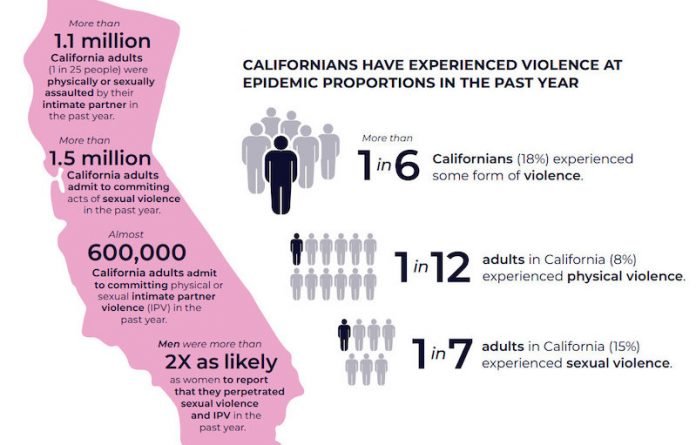
In a study from the University of California San Diego, scientists found violence is on the rise in California, with significant increases observed during the COVID-19 pandemic.
They found that more than one in six Californians (18 percent) experienced physical or sexual violence in the past year, and one in every 25 Californians experienced intimate partner violence.
Rates of both physical and sexual violence have increased since the start of the pandemic, with physical violence nearly doubling for men from 2020 to 2022.
Further demographic disparities highlight potential contributing factors that may have been exacerbated by the pandemic.
The majority of victims never formally report these experiences, so researchers say relying on criminal justice data or health records to examine the state of violence often fails to capture the true breadth of abuses.
Instead, they surveyed a representative sample of adults across the state and uses their responses to estimate population rates. Data in the latest report were collected in March 2022 from 2,285 adults.
The results found various gender disparities in the experience and perpetration of violence. Men are more likely than women to have faced physical violence, whereas women are more likely than men to have experienced many forms of sexual violence.
While more than 1.5 million adults in California admit to committing acts of sexual violence in the past year, men were more than two times as likely as women to report that they perpetrated sexual violence and intimate partner violence.
Women also showed greater mental health impacts and life disruptions due to violent experiences, with 82 percent of women reporting anxiety or depression as a result of physically aggressive, coercive or forced sexual behavior.
Women who reported physical violence were also twice as likely as men to miss work or school as well as change or quit a job.
Socially and economically vulnerable Californians—including Latino and Black communities, LGBTQ communities, people with a history of homelessness or incarceration, and people living with a disability—also faced disproportionate levels of violence.
Experiences of financial distress, including eviction and food or housing insecurity, were linked to a two to eight times increased risk of violence.
These findings suggest the rising rates of violence are linked to the harsher social climate, economic insecurity, and poorer physical and mental health that many Californians have experienced over the last few years due to the pandemic.
If you care about COVID, please read studies about how COVID-19 is linked to diabetes, and CBD from cannabis may inhibit COVID-19.
For more information about COVID, please see recent studies about the key to preventing and treating severe COVID-19, and results showing how having had COVID-19 may harm your cognitive abilities.
The study was conducted by Anita Raj et al.
Copyright © 2022 Knowridge Science Report. All rights reserved.



